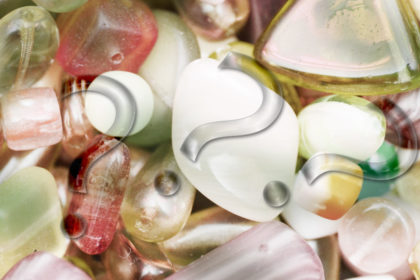Sore throat or throat pain is something we’ve all encountered in the course of our lives, multiple times. It’s not a pleasant thing, but if you treat it on time, it can often, if not always, stay a minor nuisance, soon to be forgotten.
Aside from mechanical injuries, such as operations, which we address further below, sore throat can lead to many types of infection, most often the common cold or the flu. These are best waited out in bed with warm tea, home remedies, and patience. But it can also be a symptom of a strep throat (streptococcal infection of the tonsils). If you experience great pain swallowing (even water can be a challenge), fever, and enlarged/red/white dotted tonsils, your best bet is to see your doctor who will probably start a course of antibiotic – 30-40% of tonsillitis is strep throat and, if left untreated, can lead to complications such as scarlet fever or rheumatic fever.
At any rate, your sore throat can be made more comfortable by the following measures:
- Warm tea with honey
Enjoy a simple warm (nice and hot but not scalding) tea, for instance with a squeeze of lemon (vitamin C). If you have a fever, linden tea will help you sweat it out, chamomile soothes, green tea is rich in anti-oxidants, peppermint helps clear up your airways – but any other tea you fancy will help you.
It’s always a good idea to add a dollop of honey in your tea if you have a sore throat. Honey has antibacterial and soothing properties your throat will welcome, and also acts as a cough suppressant if that is your complaint too. One word of caution – add the honey (and the lemon) once the tea has cooled down a little bit (at least 160 F / 70 C) as too hot temperatures degrade its quality and efficiency.
Another benefit of warm tea is that it raises the temperature locally, and that alone helps kill bacteria and viruses (more in this article). Don’t scald your already tender throat, drinking scalding liquids in general is unhealthy, but keeping it nice and warm is not only comfortable, but useful.
- Super-Germ-Killer-Health-Overdrive Tea
This recipe was given to me by a friend and has proven to be a very effective remedy which deserves its own entry. As taste goes, you’ve definitely enjoyed better liquids, but it’s healthy and the results make it worth it.
Cut a few thin slices of ginger (you can also crush a chunk of peeled ginger in a garlic press if you prefer). Add half a teaspoon of cayenne pepper and pour hot water over it to make tea. Once it’s cooled down a bit (160 F / 70 C), add a teaspoon of honey and the juice from half a lemon.
The efficacy of this delicacy is supported by science – ginger has anti-inflammatory and anti-bacterial properties and is a natural pain-killer. It also improves your circulation, thereby helping your immune system to get rid of the offending invaders faster. Honey is soothing and also anti-bacterial, and so acts as a natural antibiotic. Cayenne pepper can help reduce inflammation and is a natural pain-killer. The lemon provides natural vitamin C and mightily improves the taste.
Be your own judge on whether this spicy tea is too harsh on your throat – if you have open sores, you might want to wait for them to heal a bit until you enjoy the benefits of this particular burner. Also, do not overdo it – if you drink too much of it or for too long time, you might get tummy aches from all the spicy.
- Gargling salt water
Being so salty, the salt water tends to pull in more liquid from around itself (i.e. mucus from your poor tortured throat, which, unappetizing but handy, is filled with viruses or bacteria – the less for you to handle). This should help you feel better, even though it won’t cure you. WebMD recommends a ¼ to ½ teaspoon of salt in a glass of warm water. Gargle with it a few times a day and try not to swallow, though little mishaps should be fine.
As an alternative, you can gargle with sage tea (1 tbsp of dried leaves per mug of boiling water, let seep for 10-15 minutes), licorice root water (1 tsp of syrup or powder in a glass of water) or peppermint tea.
- Have a lozenge
There are many out on the market, both with synthetic and natural analgesics. If available near you, pastilles based on mineral water are also a good option. Even the simple act of sucking on something soothes your throat with the increased saliva production.
This is a good remedy in case your throat pain is caused not by a germ, but for example operation or other mechanical reason.
- Priessnitz wrap
A very effective and simple hydrotherapy remedy for sore throat – or any other sore part of the body, including chest when you have bronchitis, tender joints etc. It is very simple to apply.
Soak a piece of cloth in cold water (normal tap temperature). Wrap around your throat and secure with a safety pin or a knot. Cover this with a layer of polyethylene (you can simply cut to size one of the little bags you get in the supermarket to put your apples in) or cling film, so that you have a barrier between the soaked cloth and further layers. Then wrap a warming cloth, such as a scarf or a towel around to seal it. The cold water will warm up very nicely and help heal your throat.
If sore throat is something that attacks you often or you don’t enjoy all the wrapping (which can be a bit of a bother), you can buy a pre-made wrap (for instance one of these).
- Lemony water
It is important to stay hydrated when your organism is under siege, and cold or warm drinking water with lemon juice (if you really need some sweetness in it, add honey instead of sugar and mix well) is a good way to soothe your throat and get an extra boost of natural vitamin C, potassium and vitamin B6.
Use freshly squeezed lemon juice rather than slices of lemon that float about – you get more out of it and unless you’re using organic lemon, the skin of the citrus is usually rather heavy with residual pesticides.
- Steam it up
Especially if your sore throat is already accompanied by congested sinuses, you might like a make-shift steam-chamber. Put two tablespoons or 2-3 teabags of chamomile tea in a bowl and pour boiling water over it. Once it settles to a temperature you’re able to bear – try as hot as you can comfortably handle – put your head over the bowl and cover it with a large towel that reaches all the way to the table to trap the moisture in. You will create a mini-steam sauna just for your head. Simply sit and inhale, have a box of tissues on hand as it really gets the mucus flowing.
- Homemade soup
Chicken broth is especially famed to help those challenged with any sickness, but any home-made broth will help you, especially one made with bones. It is very good nourishment combined with hydration, and as an added bonus, it comes in a way that is very gentle on your throat.
- Zinc
If your sore throat is the start of a common cold, using zinc at the onset of symptoms (best within 24 hours, so it’s good to keep some in your medicine cabinet) should help prevent the virus from multiplying, thus sparing your immune system some workload and shortening the duration of common cold (ref). Zinc is available as a simple mineral pill or as lozenges. With kids, especially boys, stick to the recommended dosages.
- Humidify the air
If you have a humidifier, that’s helpful, but it can help to simply hang a wet towel or two in your room – the point is not to have too dry air that would dry out your throat, making the irritation even worse.
As sore throats and colds generally tend to come in the winter months, make sure you air your room regularly, especially if you humidify. The difference in indoor and outdoor temperatures can cause water to condensate on the walls and that could lead to mold in your room – something you very much want to avoid. If you humidify regularly, check your walls from time to time behind furniture that’s on the walls towards the outside, and in corners.
- If at all possible, keep it to yourself…
Getting any illness is a drag and ideally, you should try and stay at home to both help yourself and prevent it from spreading further. This option is sadly not always possible, but you can do things to help spare your colleagues, loved ones, and fellow citizens in general from the joys you are now experiencing. Simply washing your hands often, especially after they’ve come in contact with your face or after blowing your nose; coughing and sneezing into your elbow rather than in the middle of the room or your hand; and staying away from closer forms of contact, such as hugging, whispering in the ear etc., will go a long way toward protecting others and yourself.
In general
Even if it’s just the sore throat, take it easy. It is a sign that your body is fighting some sort of infection, so help it. Rest, sleep well, load it with the stuff it needs – vitamins (particularly vitamins C, B complex) and minerals. Try to get as much as possible from natural sources – fruits, vegetables etc., it is best absorbed that way, and if you’re supplementing, it might be a good idea to take your supplements along with the food that naturally contains the substance. You will see what works for you.
Throat Pain Caused by Mechanical Injuries / Operations
- Ice cream and popsicles!
Many a child was promised ice cream as the silver lining to a tonsillectomy – and rightly so. The cold soothes injured throat very nicely and helps keep the swelling down. You can either go for ice cream, ice chips, or freeze some home-made lemonade (very diluted and non-acidic, e.g. cucumber). Ice cream (or any other milk product) is not recommended during the first 24 hours from the surgery.
- Diluted apple juice
Keep it mild and cold – it’s a good source of hydration and the taste makes you drink more than plain water would; this is true especially for kids. Use fruit that doesn’t irritate the wounds (citrus fruits are best avoided).
- Mushy/liquid food
Applesauce, mashed banana, broths and soups of any kind – anything that slides down gently and offers nourishment.
- Supplements
Your doctor gave you tailor-made recommendations and you should always consult any supplementation with them to make sure it doesn’t counteract any medication you have been prescribed. But commonly recommended supplements to help you recover from surgery include vitamin K (helps with blood clotting), co-enzyme Q10 (aids healing and speeds recovery), vitamin C (antioxidant proven by some studies to speed up healing of wounds) and rutin (protects blood vessels and acts together with vitamin C to improve healing).
- Silence
This might be needless to say, but spare your throat as much as possible.
We wish you a speedy recovery and lots of health!
Image source: 123rf.com, nerthuz




